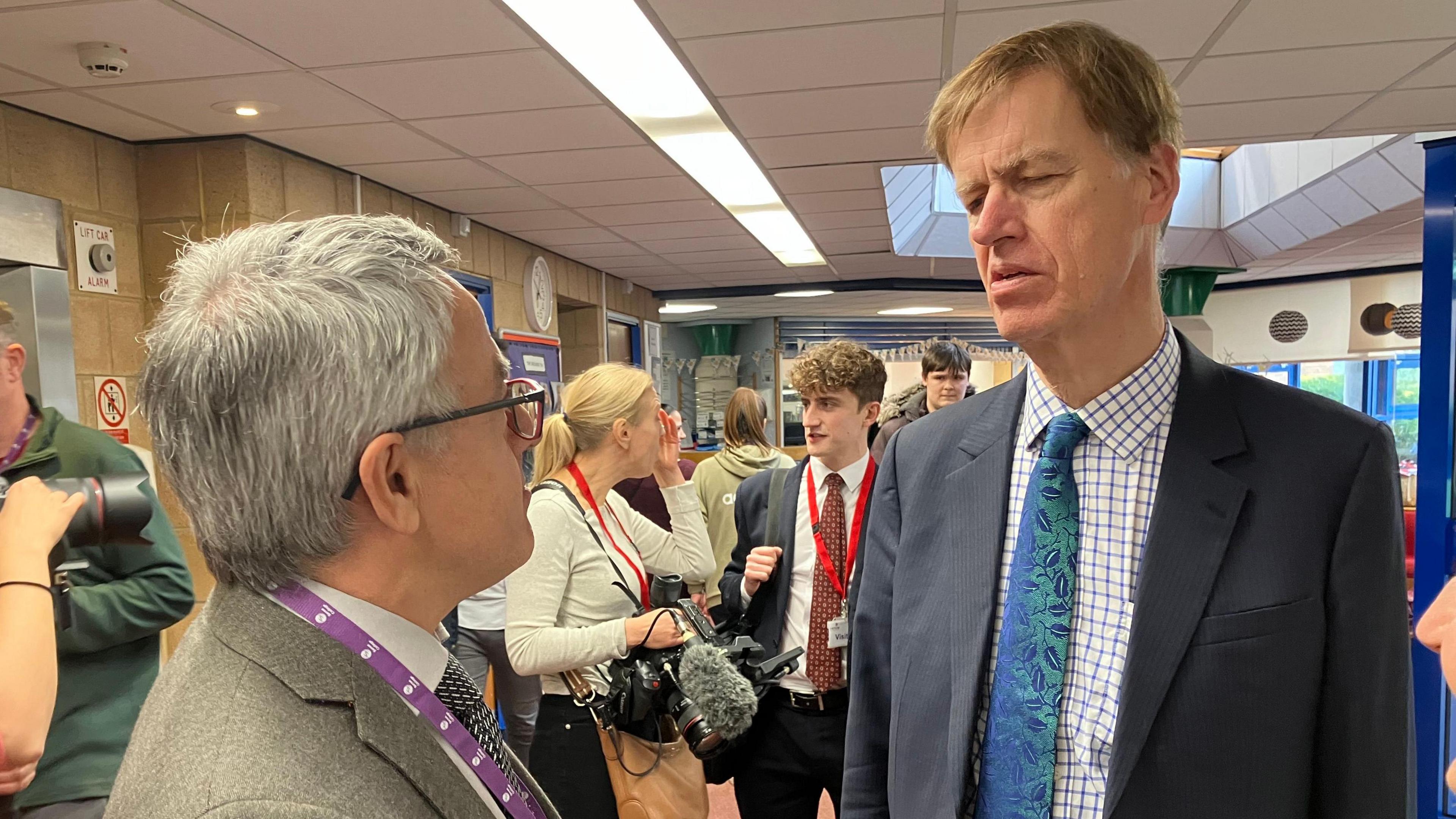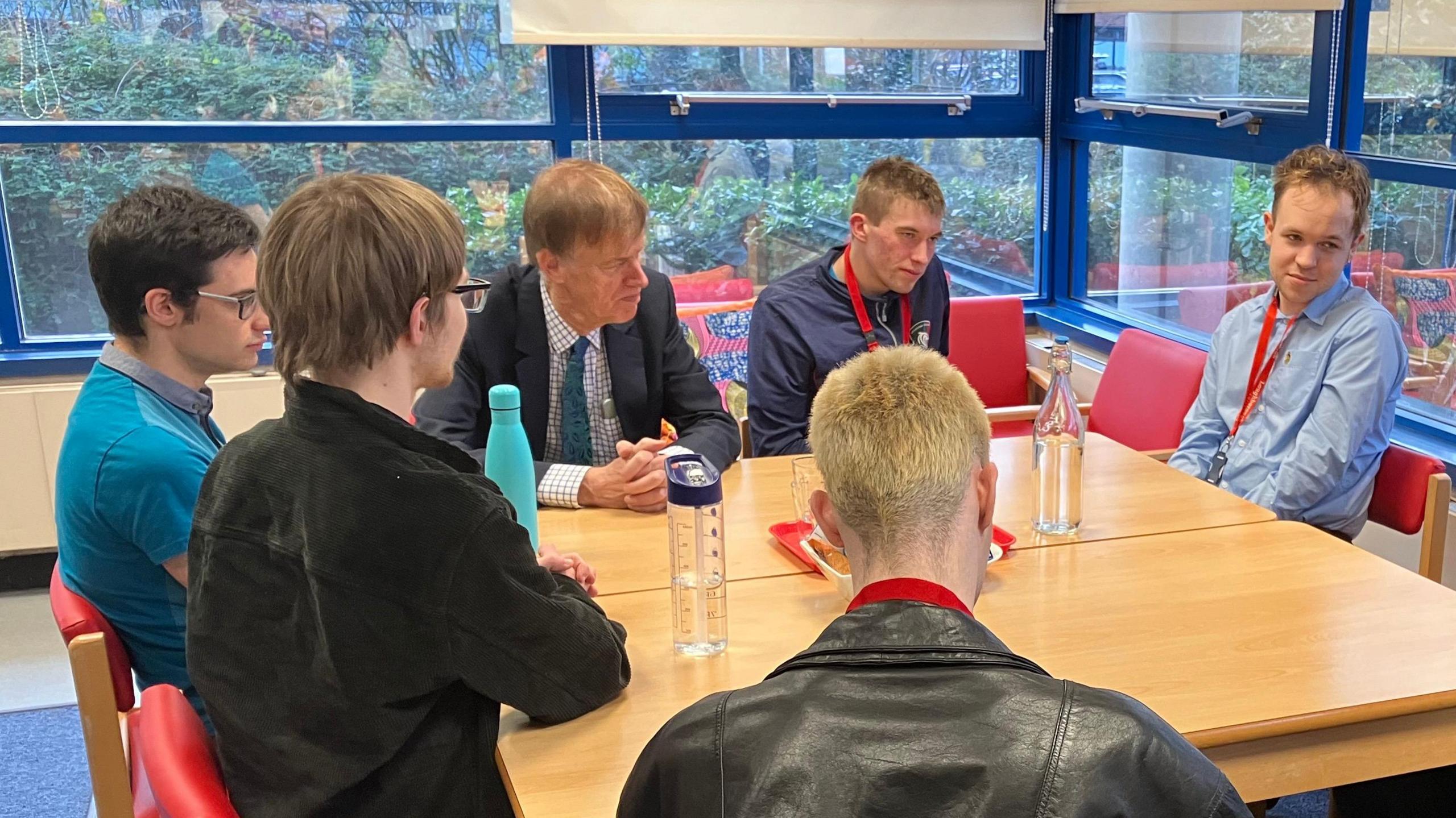Why a thriving college is worried about money

Sense College principal Gary Hyndman gave Timms a tour of the facilities
- Published
The corridors are bustling with the sound of chatter and laughter as students and staff pass the wide reception area at Sense College in Loughborough.
And a visit from a government minister only adds to the atmosphere, as the college goes about its daily work.
But for principal Gary Hyndman, this is a rare opportunity to speak face-to-face with Disabilities Minister Sir Stephen Timms - and he is not going to waste it.
The college, in line with the whole special education sector, faces huge financial challenges - the result of what the principal calls "unfinished business" from the last government and decisions made in the most recent Budget.
Pressure building
The college - part of the disabilities charity Sense - is not immune from increases in National Insurance contributions (NICs) announced in the Budget.
Changes to these payments will cost the sector nationally £1.4bn per year, according to the National Council for Voluntary Organisations.
Add increased minimum wage costs and the financial challenges grow.
My Hyndman wouldn't be drawn on specific figures for the college but said paying more in NICs would "definitely have impact because that's a big expenditure".
Many of Sense College's student placements are funded by local authorities, and he is well aware of the money troubles they face as well, but he wants to ensure they can still fully fund these student placements - including their transport to and from college.
In paying more NICs he says: "It'll be interesting to see how that money comes back to us because it may well come back in the funding we receive from the government -- and I would expect that it would."
Jobs hope
It is not yet clear how exactly that money will come back.
The disabilities minister said: "Any organisation pays employers National Insurance so everybody is affected but I'm confident that as these things work through, over the next year or two, people will see that the changes we've made are moving the country in the right direction for charities, for businesses, for individuals."
Timms visited Loughborough because he wanted to learn more about how Sense College helps get more people into employment.
The government is about to launch a White Paper, 'Get Britain Working', that sets out a long-term ambition to reach an 80% employment rate.
That, the government says, would mean over 2m more people in work, building the whole economy and generating the income to put back into the whole education sector.

The minister spoke to students, included Len (right), about their studies
It is clear to see how places like Sense College could help improve the employment rate.
It supports students aged 16-25, with a wide range of disabilities, to be as independent as possible.
Students on its vocational pathway can pick up practical qualifications, like at any other further education college.
Len has a dual placement at Loughborough College, which is right next door to Sense. He is studying Level 3 Travel and Tourism.
He told the minister how college staff were "very, very good at listening to what you want. However you want extra support or less support, they're very student-led and they're happy to change things around for you".
The students and staff hope the government can at least maintain funding for the college and its work, so more people can get the support they need to be fully involved in the world of work.
Get in touch
Tell us which stories we should cover in Leicester
Follow BBC Leicester on Facebook, external, on X, external, or on Instagram, external. Send your story ideas to eastmidsnews@bbc.co.uk, external or via WhatsApp, external on 0808 100 2210.